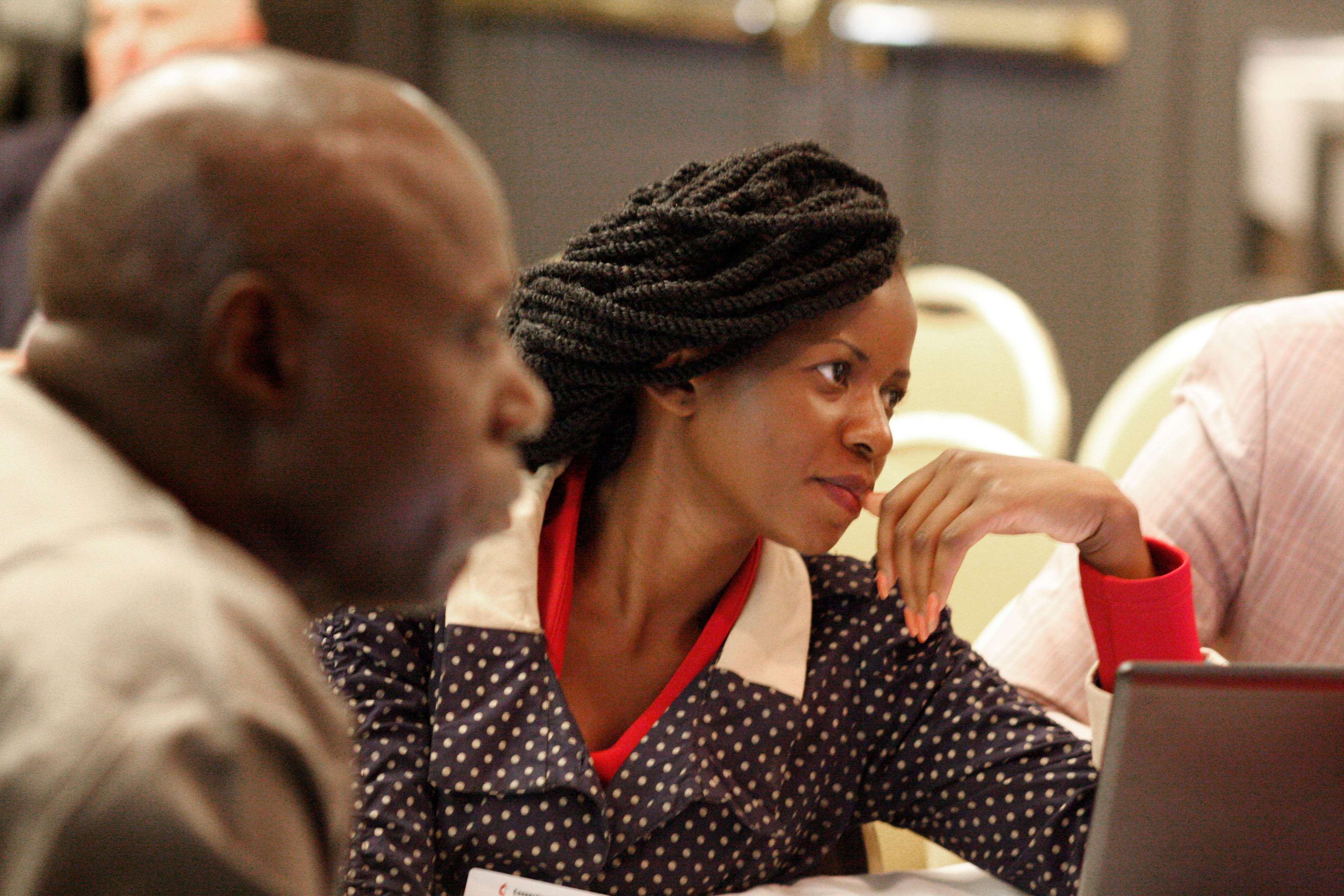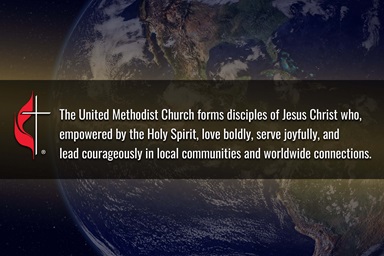“Christ’s church is in greater hands than ours,” Bishop Christian Alsted told the new Connectional Table members as they opened their first meeting.
Alsted, chair of the 2017-2020 Connectional Table, said the goal is simple. “Be faithful participants in God’s mission of making disciples for the transformation of the world.”
He was speaking to the 59-member United Methodist body of laity and clergy who act as a sort of church council for the denomination, coordinating mission, ministry and resources. Part of the Connectional Table’s role is to help general church agencies connect with local churches, annual conferences and each other.
The organizing meeting on Nov. 5-7 aimed to set the tone of the body’s work for the next four years.
Funding Way Forward
The Connectional Table has the authority to distribute World Service contingency funds.
The body approved using up to $1,057,612 to cover expenses for the newly formed Commission on a Way Forward, the bishop-appointed body charged with reviewing church policies on homosexuality and promoting church unity.
The 32-member commission will have nine meetings by the end of 2018. Moses Kumar, top executive of the General Council on Finance and Administration, said using World Service contingency funds for this purpose is in “harmony” with Paragraph 806 of the Book of Discipline about making funds available for “extraordinary” projects. The Episcopal Fund, which supports the work of bishops, will contribute $496,093 for a total budget of $1,554,515.
The Rev. Amy Valdez Barker, top executive of the Connectional Table, reminded the members that their tasks include increasing vital congregations through advancing the denomination’s Four Areas of Ministry Focus. Those areas are: developing principled Christian leaders, creating new places for new people, engaging in ministries with the poor and improving global health.
She also said the Connectional Table has a role in strengthening the worldwide nature of the multinational church, which has about 12.4 million members on four continents.
The task is large, Valdez Barker said. But she assured the leaders: “You were chosen as members of the Connectional Table ‘for such a time as this.’”
Changing cultures
Alsted, who also leads the Nordic and Baltic Episcopal Area, said changing the culture of the denomination will be difficult but necessary.
“The underlying important focus to me is working on the culture of the church,” Alsted said. “We have the values in place. We have all the words, and we say it all the time. However, we still operate as a U.S.-based church that has satellites in other parts of the world.”
Alsted, a native of Horsens, Denmark, is the first non-U.S. bishop to lead the Connectional Table since the leadership body was established in 2004.
He would like to see church members get away from referring to churches in Africa, Asia and Europe as “outside” the U.S. He would also like to see the church get away from using the term “central conferences,” which is the designation the Book of Discipline uses for African, Asian and European church regions.
“We are the church in Africa, Asia and Europe,” he said.
Work to do
At this meeting, the members divided into two groups with advisory sub-groups to address vital congregations and the worldwide nature of the church.

Miracle Osman (center) of the Malawi Provisional Conference takes part in a discussion during the United Methodist Connectional Table meeting in Jacksonville, Fla. Photo by Kathy L. Gilbert, UMNS.
The group on the “Worldwide Nature of the Church” will address legislation referred to the Connectional Table by the 2016 General Conference, the denomination’s top lawmaking body.
These include: a Connectional Table-submitted proposal to replace itself with a more global General Church Council, parts of the church agency restructuring in Plan UMC Revised, the development of a more globally relevant general Book of Discipline in partnership with the Standing Committee on Central Conference Matters, and the question of where the United States can best address legislative and policy issues in its own context.
Three additional advisory groups focused on missional trends, the development of a connectional assessment tool, and agency evaluation, will support a separate working group on Vital Congregations through the Four Areas of Focus.
“If we think by creating a general Book of Discipline that we will change our culture I think we are wrong. It can help but we need to work on our language. Address the way we think and the way we talk about the church in different parts of the world,” Alsted said.
Valdez Barker said there is a “great deal of technical and adaptive work” before the Connectional Table, but she feels the members are up to the task.
“My prayer is for us to find our way through the leading and wisdom of the Holy Spirit to run the race faithfully, lead the church faithfully and illustrate the good gift of being authentically united as people of the Body of Christ.”
Gilbert is a multimedia news reporter for the United Methodist News Service in Nashville, Tenn. Contact her at 615-742-5400 or [email protected].
Like what you're reading? Support the ministry of UM News! Your support ensures the latest denominational news, dynamic stories and informative articles will continue to connect our global community. Make a tax-deductible donation at ResourceUMC.org/GiveUMCom.





